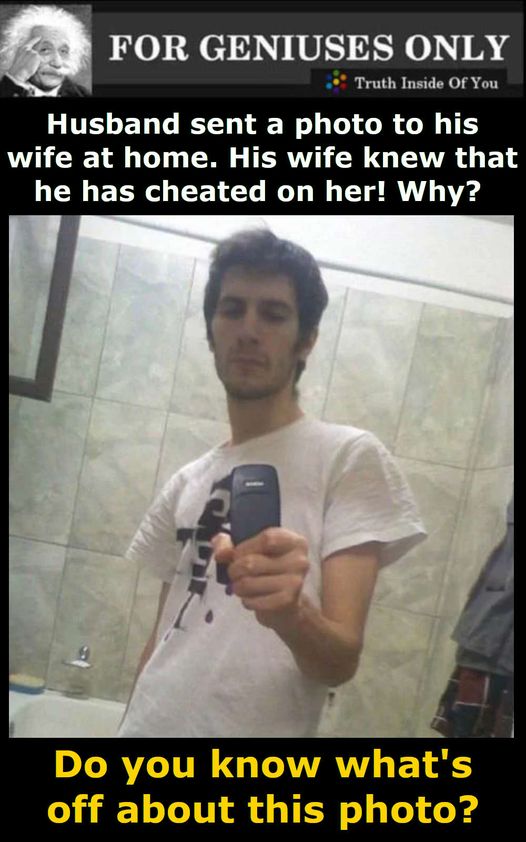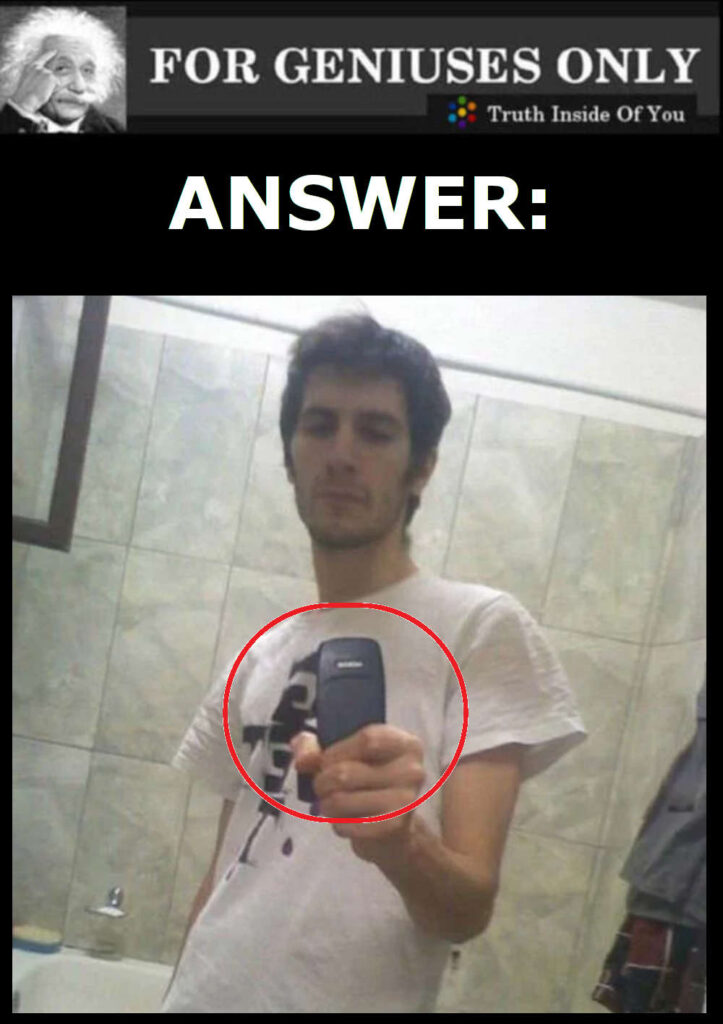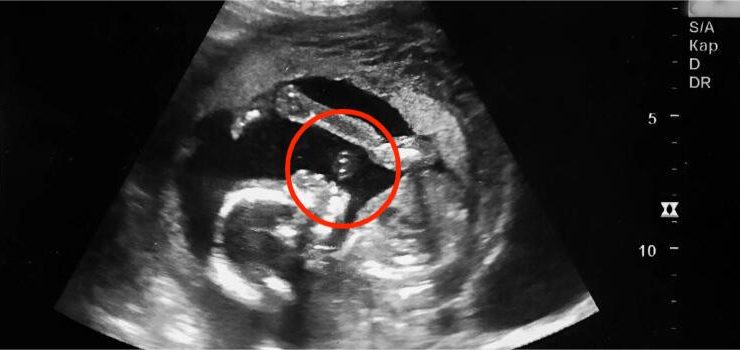It all began with what seemed like an innocent gesture—a casual selfie sent from a husband to his wife. It looked harmless at first glance, just a smiling face with no obvious red flags. But buried in the background of that photo was a subtle detail that would ultimately expose a devastating secret.

The wife, trusting her instincts, noticed something didn’t quite add up. As she studied the image more closely, the pieces began to fall into place. Her intuition told her to dig deeper, and what she uncovered changed everything: her husband was cheating, and the selfie he sent—meant to be casual and inconspicuous—was the very thing that gave him away. The giveaway wasn’t in his expression or his words, but in the reflection behind him. Mirrors don’t lie, and in this case, the reflection betrayed the truth. While he posed with a smile and held up the camera, the reflection in the background painted a different picture.
The phone he claimed to be holding wasn’t visible in the mirrored surface, indicating that something had been altered or manipulated in the image. That small inconsistency was all it took to unravel a much larger lie. The photo was doctored, and the woman’s ability to notice that discrepancy revealed a secret that might have otherwise remained hidden. This story not only captivated people for its emotional twists but also because it mirrors the appeal of puzzles, brain teasers, and riddles—activities that challenge our perception and force us to pay close attention to what’s real and what isn’t. Our fascination with these mental games stems from their ability to stretch our minds, forcing us to look beyond the surface. They aren’t just fun—they serve a greater purpose. Studies have shown that engaging with puzzles boosts memory, sharpens logical thinking, and improves attention to detail.
These skills aren’t just helpful for solving riddles—they’re invaluable in everyday life, from catching small mistakes at work to spotting red flags in relationships. Brain games promote intergenerational bonding too. Whether you’re doing a word puzzle with your kids or tackling a Sudoku with your grandparents, it’s a shared experience that fosters connection and mental engagement. That’s why platforms offering puzzles tailored to all ages and skill levels are so popular—they provide both entertainment and cognitive exercise. This husband’s selfie incident is a real-life example of why those observational skills matter.
In the puzzle of life, sometimes it’s the tiniest clue—a reflection, a shadow, a word out of place—that reveals the truth. His wife’s ability to detect that the reflection didn’t match the scene was like solving a logic problem. It’s proof that sometimes, life gives us puzzles in unexpected forms. And when we’re paying attention, we can solve them. The power of observation goes far beyond games and riddles. It influences how we interpret the world around us. Those who regularly engage in activities that challenge the mind are better prepared to catch anomalies, read between the lines, and avoid being misled. There’s a deep sense of satisfaction that comes from solving a tough problem, whether it’s a crossword puzzle or a personal mystery. That feeling of “I figured it out” is both empowering and enlightening. It encourages us to trust our instincts and question what we see, especially when something feels off. In today’s fast-paced digital world, where manipulated images and misinformation are everywhere, learning to look closely has never been more important.

The selfie story is more than just a tale of infidelity—it’s a reminder that awareness and observation can reveal truths that others try to hide. The smallest details, often overlooked, can lead to the biggest revelations. So, whether you’re working through a challenging riddle, reviewing a spreadsheet, or simply scrolling through photos, take a moment to pause and really look. What’s hiding in plain sight might surprise you. This story teaches us that sometimes, a single moment of clarity—sparked by one tiny detail—can expose an entire deception. It’s not just about trust or betrayal. It’s about being sharp, alert, and willing to question the things that don’t sit right. The world is full of hidden messages and subtle truths. All you have to do is pay attention.





